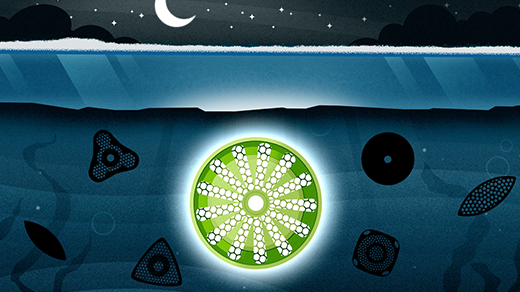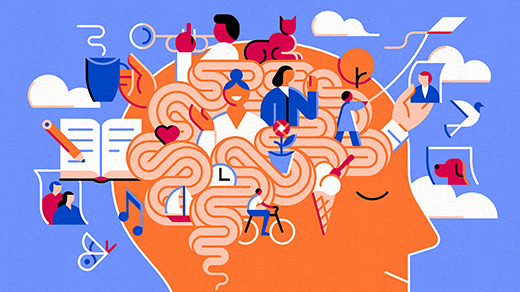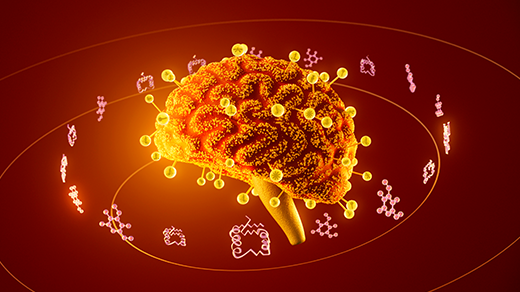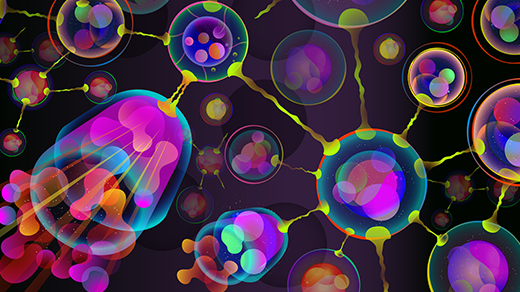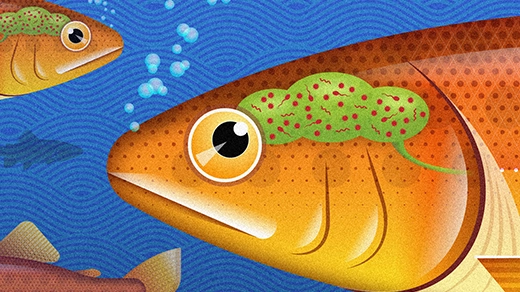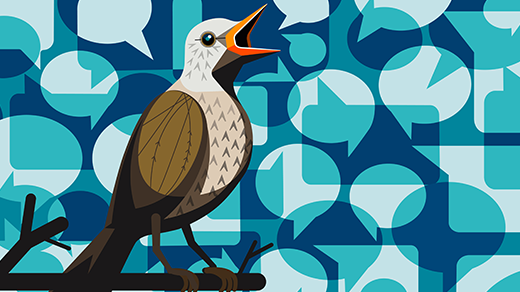What's up in
Biology
Latest Articles
The Poetry Fan Who Taught an LLM to Read and Write DNA
By treating DNA as a language, Brian Hie’s “ChatGPT for genomes” could pick up patterns that humans can’t see, accelerating biological design.
How Does Life Happen When There’s Barely Any Light?
Under the sea ice during the Arctic’s pitch-black polar night, cells power photosynthesis on the lowest light levels ever observed in nature.
Concept Cells Help Your Brain Abstract Information and Build Memories
Individual cells in the brain light up for specific ideas. These concept neurons, once known as “Jennifer Aniston cells,” help us think, imagine and remember episodes from our lives.
The Ocean Teems With Networks of Interconnected Bacteria
Nanotube bridge networks grow between the most abundant photosynthetic bacteria in the oceans, suggesting that the world is far more interconnected than anyone realized.
Scientists Re-Create the Microbial Dance That Sparked Complex Life
Evolution was fueled by endosymbiosis, cellular alliances in which one microbe makes a permanent home inside another. For the first time, biologists made it happen in the lab.
The Year in Biology
Biologists used artificial intelligence to make discoveries about molecules and the brain, and overturned long-held assumptions about the immune system and RNA.
How Is Cell Death Essential to Life?
Cells in our bodies are constantly dying — and these countless tiny deaths are essential to human health and multicellular life itself. In this episode, co-host Steven Strogatz speaks with cellular biologist Shai Shaham about what makes a cell “alive” and the latest developments in understanding how and why cells die.
Fish Have a Brain Microbiome. Could Humans Have One Too?
The discovery that other vertebrates have healthy, microbial brains is fueling the still controversial possibility that we might have them as well.
What Can Birdsong Teach Us About Human Language?
We often consider spoken language to be a feature that distinguishes humans from other forms of animal life. Brain research, however, suggests that other creatures — including certain birds — share some of our neural circuitry related to language. In this episode, co-host Janna Levin explores the origins and underlying mechanisms of human speech and birdsong with neurobiologist and geneticist Erich Jarvis.

